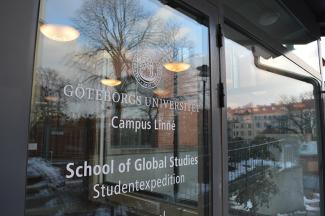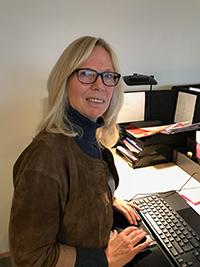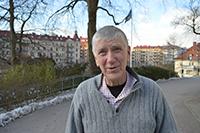A change of perspectives can create socially sustainable cities
Eight perspectives that can – if changed – create fair and socially sustainable cities. This is a result of the KAIROS project that Mistra Urban Futures has invested in.

KAIROS is short for Knowledge about and Approaches to Fair and Socially Sustainable Cities. The main purpose of the project was to map how globalisation, migration and urbanisation influences us and place demands on the environment. The projects research team therefore created a bank of scientific and experience-based knowledge of paths to a desirable social change.

- At the beginning of the project, we had a broad and open discussion about the conditions for cities to become socially sustainable. It was to bring together knowledge that came from research and practice, says Birgitta Guevara, analyst at the Swedish Government initiative the Delegation against Segregation and project co-ordinator for KAIROS.
The results from the broad discussion were presented in eight “changes of perspectives”, eight points describing how social issues like equality, housing shortage or political influence can be seen in new ways.
The Government offices are listening
One effect of the project is that the School of Culture in Gothenburg has used the “changed perspectives” in its development work. One other effect is that the knowledge output from the KAIROS project on segregation has been used as course literature at the University of Gothenburg and at the Swedish Government Offices.
- I wrote a knowledge base and a “changed perspective” on segregation and discrimination. They have been used by students and have been disseminated, Birgitta says, explaining that the project leader Hans Abrahamsson has also traveled all around Sweden and talked about the changed perspectives.
- Hans work on spreading this has been very important. He has worked closely with SKL, the Swedish Association of Local Authorities and Regions. Hopefully, some municipalities and organisations have had a change of perspectives.

Hans Abrahamsson, Peace and Development Studies researcher at the University of Gothenburg and Åsa Lorentzi from the City of Gothenburg were project leaders for KAIROS.
"The results have come to great use when I subsequently had an advisory role for a number of social sustainability commissions."
- The results have come to great use when I subsequently had an advisory role for a number of social sustainability commissions around Sweden. Among other places in Stockholm, Trollhättan and Karlskrona, where I also participated in and was responsible for the implementation of knowledge seminars around the theme, says Hans Abrahamsson.
Co-creation – the most important aspect
On behalf of SKL, he has created an education based largely on KAIROS research findings on environmental knowledge, social change and citizen dialogue. It is directed towards municipal elected representatives and officials. He has also developed and deepened his contributions to KAIROS in the form of a comprehensive research study.
"Digital education package for municipalities and regions"
– Together with online lectures it creates a part of a digital education package for municipalities and regions. The response has been good. I have been invited to present the results at around 50 seminars and conferences since the project KAIROS was finalized in 2016.
In total, Hans Abrahamsson has visited or has had contact with more than half of Sweden’s 290 municipalities. But he would have liked to see that the municipalities addressed the questions even more.
- The questions are complex. Lack of power and courage often means that politics and administration are forced to simplify, continue to do as before - albeit with the ambition to do more and better - instead of doing differently.
The hope is that many municipalities have had an eye-opener. Hans Abrahamsson thinks that KAIROS's most important research results are about co-creation, that is, residents jointly create the future city.
- The time of social engineering is over. You cannot build socially sustainable cities FOR people. They must be built WITH people.
KAIROS eight changed perspectives towards social sustainability:
1: From negative to positive security - the need for an inclusive and co-creative urban policy.
2: From housing shortage to employment and jointly building the community.
3: From a purely market-oriented growth mindset to a healthier societal development.
4: From control to more co-creation in the educational system.
5: From working for the citizens, to working with the citizens - the need to more broadly include civil society.
6: From formal rights to real rights – the need to have a broad equality principle.
7: From focus on only customer benefits to focus on a broader public value – the need to have a new type of governance with co-creative leadership within the public administration.
8: From invited dialogue to a co-creative democracy – ways of active co-creation at local levels.
Project facts
KAIROS, Knowledge about and Approaches to Fair and Socially Sustainable Cities.
Partners: The City of Gothenburg, the County Administrative Board of Västra Götaland, Region Västra Götaland and University of Gothenburg.
Project period: 2012-2016